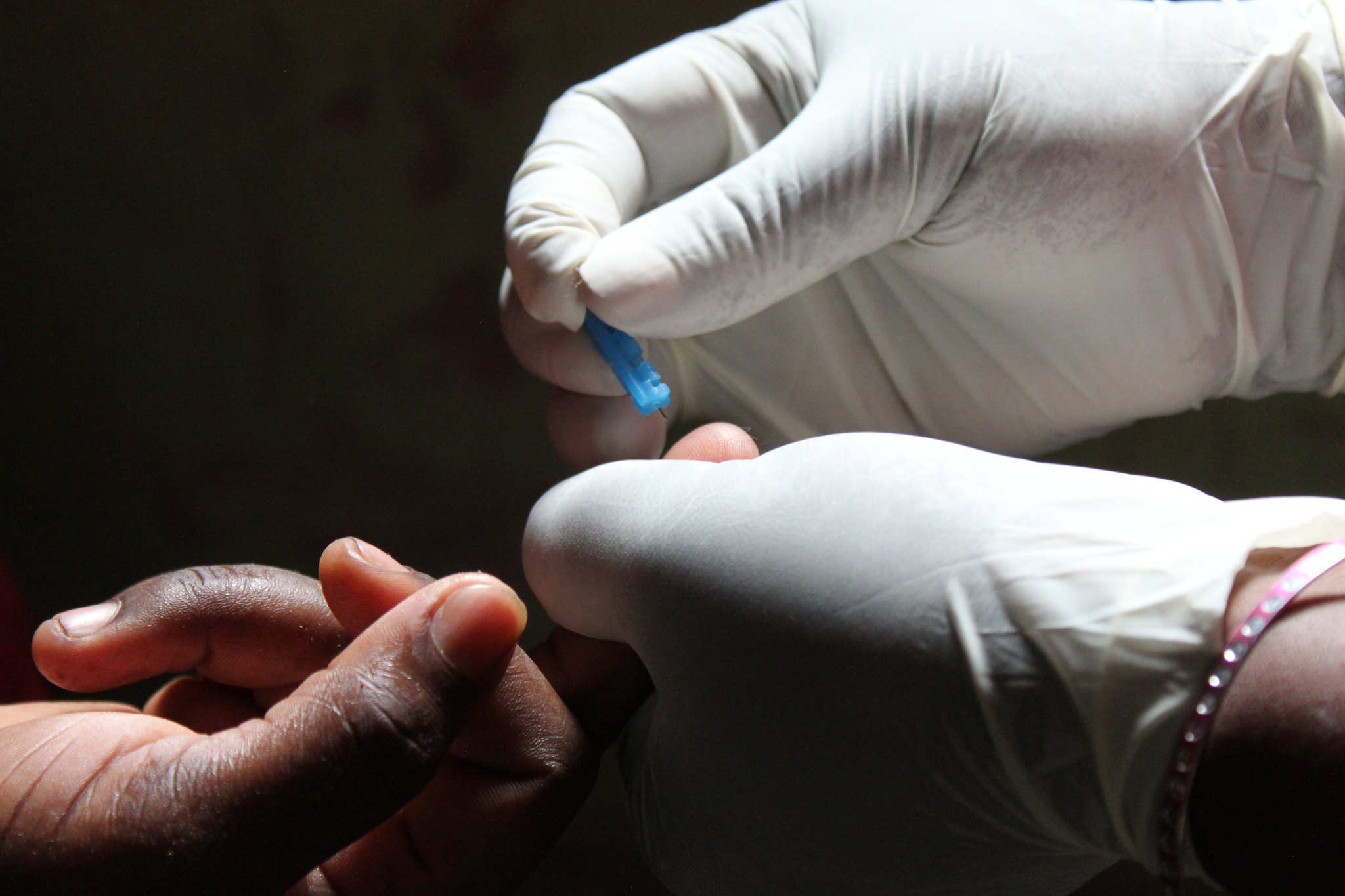Antiretroviral Drug Availability and HIV Testing

A community health worker and counsellor tests a sample of blood to ascertain whether the donor is HIV positive or negative. Credit: KUAP Pandipieri / Flickr
From 2000 to 2011, there was an enormous expansion in access to antiretroviral (ARV) drugs in sub-Saharan Africa (from under 10,000 to more than 8 million). To identify the impacts of ARV access on risky sexual behavior, this project used geocoded information about the timing of ARV introduction in each health facility in Kenya. Using difference in differences estimates, findings show a correlation between risky behavior among young people and access to ARVs. However, the introduction of ARVs also reduces infectiousness of those on treatment and extends life expectancy for those living with HIV. Thus, despite an increase in risk-taking, ARVs have significant welfare benefits, especially if ARV distribution is high enough to provide earlier treatment to infected individuals.

